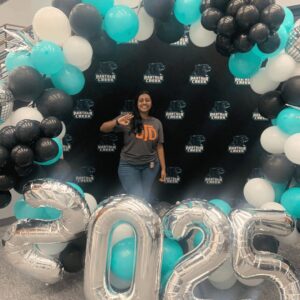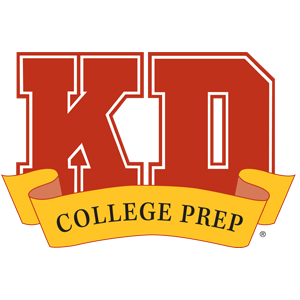After working hard all school year, you deserve a break during the summer. It’s great to kick back and relax here and there. However, summer is also an opportunity to get ahead for the next school year. In particular, working through a summer college planning checklist can put you in a solid position for the year ahead. Try working through as much of the following checklist as you can, and don’t fret! There’s lots of fun stuff in this checklist too.
Checklists By Grade Level:
Freshmen: The Summer Before 9th Grade
Explore career and artistic interests
At this point, it’s not necessary to have a firm idea of your intended career. You’re still discovering who you are as a person and what sort of endeavors are most appealing to you. Now is the time to branch out and try a bunch of different things that look like fun. Spend some time thinking about what you’re passionate about.
Research GPA and high school course requirements for ideal colleges
Just as you don’t need to settle on a career just yet, you also don’t need to decide exactly where you want to go to school. However, you’re about to start high school, which means you’ll have some degree of choice regarding your class schedule—and your class schedule can influence college acceptance and career paths. Choose a few colleges of interest and check out their GPA and high school course requirements.
Get involved in extracurricular activities
Extracurriculars aren’t just fun and a great opportunity to make new friends; they’re also important for your college application. At this point, you don’t need to know exactly which clubs, sports teams, and student organizations you’d like to participate in for the rest of your high school years. It’s sometimes beneficial to join a few different activities to figure out where your interests lie. Then, decide which ones you’ll stick with. (Hint: Don’t join every single activity available.)
Attend a summer camp or event
Speaking of summer extracurricular activities, you’ll want to pack as much excitement into your summer break as possible. Talk to your parents about attending a summer camp or event (workshop, summer program at the local library, etc.). Look for one aligned with your interests, such as a camp that focuses on the arts or outdoor recreation.
Find a summer reading list for 9th grade
Books are immeasurably important, as reading opens up new worlds, explores a range of perspectives, builds empathy, and encourages critical thinking. Becoming a voracious reader will also help you ace language-related questions on the SAT® and ACT® tests. Look online for recommended summer readings for rising ninth graders. Some examples include:
- All Quiet on the Western Front by Erich Maria Remarque
- Animal Farm by George Orwell
- Black Like Me by John Howard Griffin
- Great Tales and Poems of Edgar Allan Poe by Edgar Allan Poe
- Little Women by Louisa May Alcott
Look for volunteer opportunities
Did you know that altruism offers psychological benefits? Volunteering is not only good for you; it’s good for your community. Plus, it looks great on college applications. (Furthermore, altruism is a good vocab word to know for the SAT and ACT tests.)
Consider a test prep program
Speaking of the SAT and ACT tests, you may be ready to start preparing for them right now. If you’re a strong student, now can be a good time to develop a test prep plan. You could also talk to your parents about signing up for the Complete™ Program—a comprehensive test prep program.
If you don’t feel that you’re ready to begin preparing for the tests yet, that’s perfectly fine. You may want to visit with an expert to get some recommendations on the best time for you to start.
Plan your high school course schedule
By this point, you should have a general idea of where your interests might lie, although it’s perfectly fine if they evolve over time. Explore your school’s course catalog for the upcoming school year and determine which 9th grade courses appeal to you. Do note that your high school guidance counselor will determine much of your schedule, as you’ll be required to take the core classes. However, there may be some space for electives.
Go on a college visit at a nearby college
You may be wondering why this suggestion is on a college planning checklist for rising ninth graders. Some might say it’s too early to begin doing college visits. However, the point of doing visits now is not to choose which colleges to apply to.
Rather, it’s to develop a sense of the opportunities that await you. That’s why you should do a visit at the nearest college, regardless of whether you think you might want to attend it. Soak up the ambience in the quad, student center, library, and other points of interest around campus.
Research contest and competition opportunities
When you’re ready to put together application packages, you’ll need to stand out from other applicants. One way to do this is to enter into contests and competitions of interest to you. This can also be a great way to start earning scholarship money. Check out this list of competitions for ideas and play to your strengths.
Sophomores: The Summer Before 10th Grade
Enroll in a test prep program for the SAT, ACT, or PSAT tests
The most effective way to prepare for the SAT, ACT, and PSAT tests is to enroll in a comprehensive test prep program that offers the flexibility you may need. At KD, an advisor can meet with you for a free consultation to discuss if now is the best time to start.
Start building a college wish list
Use your time during the summer to research universities. Look for schools known for strong programs in your areas of interest. Keep a list of universities you’re researching, as well as notes on what you do and don’t like about them.
Research admissions requirements for colleges on your list
Add the admissions requirements to your notes for each school. Explore not only GPA and test score requirements, but also whether schools require or encourage interviews. Other requirements may apply for certain majors, such as artwork portfolios.
Re-evaluate your college prep plan
Once you have a firm idea of the admissions requirements, it’s a good idea to re-evaluate your college prep. Are you making good progress with your test prep program? Should you add more study time? If you’re struggling with a particular area, can you sign up for tutoring?
Start looking for a part-time job, research experience, or internship
Universities like students with a history of hands-on involvement. Look for an internship, part-time job, or even a research experience at a nearby college or program. Beyond college applications, these experiences will prove invaluable for you because they can help you develop soft skills.
Plan a passion project
You can have lots of fun joining extracurricular activities, but it can be a good idea to go a step further. Admissions officers love to see applicants who take the initiative to pursue their passions, even if that passion might not be directly related to your intended major. Some ideas include:
- Start a food blog.
- Launch a fundraising event for a nonprofit.
- Start a new school club.
- Do a major art project or science experiment.
Get involved in your community
If you followed the college planning checklist for ninth grade, you should already have some volunteering experience under your belt. If not, now is the time to dive in. Look for opportunities that suit your interests.
Continue to participate in the extracurriculars you love
In 9th grade, you may have tried a bunch of different extracurricular activities to see which ones suited you best. As a 10th grader, it’s perfectly fine if you decide that one or two of them just aren’t right for you. Continue to participate in the ones that appeal most to you, but remember that colleges like to see that students are involved.
Find a summer reading list for 10th grade
Your 10th grade summer reading list should include material that is a little more challenging. It’s a good idea to step out of your comfort zone. Here are a few ideas:
- The Grapes of Wrath by John Steinbeck
- Beloved by Toni Morrison
- 1984 by George Orwell
- The Voyage of the Beagle by Charles Darwin
- The Red Badge of Courage by Stephen Crane
- A Raisin in the Sun by Lorraine Hansberry
For more ideas, check to see if your school district has a recommended reading list for your grade level.
Start building your college resume
Many students wait to write their college resume until they’re already working on their applications. However, it’s best to start working on it early. By including this item on your college planning checklist for 10th grade, you’ll be less likely to forget important details.
Begin exploring college major options
It’s perfectly fine if you don’t yet know which major(s) you want to declare in college. You don’t need to decide yet, but do take some time to learn about the ones that appeal to you. Think about the courses in high school that you like the best and then look for related majors.
Research college scholarships
Did you know that you (or your parents) can start applying for scholarships as soon as you’re four years old? It might sound crazy, but it’s almost never too soon to start applying for scholarships. If you haven’t started yet, it’s definitely time to tackle this item on your college planning checklist. Create a spreadsheet to keep track of your scholarship research.
Go on a campus visit if your schedule allows
The summer before 10th grade can get pretty busy, especially if you’ve been closely adhering to this college planning checklist. However, do try to make some time for a college visit or two.
Juniors: The Summer Before 11th Grade
Plan ahead for a challenging year of coursework
Things will really start heating up for you soon, academically speaking. In 11th grade, your courses will get more challenging, and you’ll likely have more assignments and major projects. Get a head start by periodically reviewing course material from 10th grade. This can prevent summer brain drain and build a good foundation for the year ahead.
Reflect again upon your intended career and major
By this point, you may already know which major and career path appeals most to you. Yet, it’s still okay to change your mind. Now is a good time to take a deeper dive into your career research. Check out the requirements for different careers, as well. The U.S. Bureau of Labor Statistic’s Occupational Outlook Handbook is an excellent resource for career research. When you click into an occupation, look for the “How to Become One” tab to see career requirements. Here’s an example.
Pursue job shadowing opportunities
Another way to reflect on your intended career path is to sign up for a job shadowing opportunity. Talk to your guidance counselor for help finding these.
Focus on your test score goals
By this point, you should know which test score range you’re aiming for. Adjust your study schedule accordingly and double down on your test prep program. Ask for guidance on how to best prepare for your upcoming national tests.
Continue doing college research and going on college visits
Continue looking at the schools on your shortlist and going on college visits whenever possible. Consider looking beyond your shortlist to see if there are possibilities that you didn’t yet see.
Attend a college summer camp or take a college summer course
Some of the colleges on your shortlist (or a nearby school) may offer a summer camp for high schoolers, such as a STEM camp. You might also take a summer course at a nearby college, which would really boost your applications.
Take the ACT and SAT tests
Many students take the ACT and SAT tests for the first time during this summer. KD recommends that students plan on taking the SAT and ACT tests at least two times each. Again, ask an advisor for expert guidance on how to plan your testing timeline.
Pursue leadership roles in your extracurriculars
As an 11th grader, you’ve likely already participated in your chosen clubs for a couple of years. Now is the time to begin pursuing leadership roles. It’ll sharpen your soft skills and look attractive on your college resume.
Attend college fairs and/or info sessions
College info sessions allow you to learn more about the school and its programs. It’s also a chance to network with the admissions staff. Write a list of questions before you go.
Consider signing up for a college counseling program
The college admissions process can get overwhelming! Consider talking to your parents about signing up for a college counseling program that will walk you through the process step by step.
Start brainstorming college essay topics
You don’t need to start writing the essays yet, but it can be helpful to brainstorm some topics that might work. College essay prompts tend to change from year to year, but they also typically follow similar themes. You can use the Common App essay prompts for this year as a starting point for coming up with potential topics, but keep in mind that you’ll need to check back again on August 1st, the summer before 12th grade, for the official prompts.
Research scholarship opportunities
Continue looking into scholarship possibilities and putting together compelling applications. Remember, the more scholarships you apply to, the better your chances will be of winning free money.
Create a plan for letters of recommendation
The schools on your shortlist may require one or more letters of recommendation. Consider which non-family members you could ask, such as influential teachers or volunteer job supervisors.
Start talking to your parents about how you’ll pay for college
College is worth it, but it’s definitely not cheap, and it’s best not to make assumptions about what your parents can and can’t afford. Print a list of tuition rates and other fees for the schools on your shortlist and find a good time to approach your parents for a straightforward chat.
Seniors: The Summer Before 12th Grade
Finalize your college list
Your final year is finally here! Congrats on getting to this point. Your college planning checklist for this summer is all about finalizing your choices and finishing up items on your to-do list. For starters, take a hard look at your shortlist and make a final decision regarding the colleges to which you’ll apply. Application deadlines are very important here!
Complete or finalize your college visits
If you haven’t yet done so, you’ll need to finish doing your college visits. Try your best to visit every college on your finalized shortlist. If you can’t quite get to all of them, see if the remaining schools offer virtual tours.
Get a relevant summer job or internship
Look for internship and summer job opportunities in your area. Ideally, look for positions that are relevant for your intended major and career.
Start deciding on your major/career path
Although you still have some time to change your mind, you may be ready to make a final decision about your major and career. If you’re stressed out about it, it may be helpful to know that even as a freshman in college, you could still change your major if necessary.
Finish testing (if you haven’t already)
If you haven’t yet finished taking the SAT and ACT tests, you’ll need to do so ASAP. Remember that you’ll need those scores in time for the application deadlines.
Attend a College Application Boot Camp
The Apply Now! Boot Camp is four days of intensive work on college applications and essays. Held during the summer and early fall, this program is a great way to get a leg up on your applications.
Create a senior year bucket list
High school will be over sooner than you think, and with all of the deadlines to deal with this year, it can be hard to get to the things that you enjoy. Make a bucket list of things you’d love to do before you leave. Anything is fair game, like setting a sports record or attending a school dance.
Decide if you’ll apply early decision/early action
This can be a tricky decision. Consider talking to your college counselor or guidance counselor about it. If you apply early decision, you have entered a binding agreement to attend that school if accepted. Early action is non-binding. Both options require you to plan ahead and submit your applications ahead of the regular deadline. Read more about early college application deadlines.
Create a master list of college application deadlines
Good organization is crucial for avoiding the dreaded missed deadline. Post your master list of deadlines on your wall as a reminder to stay on track.
Write your college essays
It’s difficult to overstate the importance of a strong essay, and students often underestimate the number of essays they’ll have to write. You may need to go through several drafts before finalizing them. Always write them early, then set them aside, then reread and edit with fresh eyes. A helpful resource for this process is college essay tutoring.
Finalize your college resume
Put the most important details on your college resume, such as awards, specialized workshops, community service, special skills, etc. If yours is too lengthy, prioritize the activities that demonstrate a longer commitment.
Plan ahead for scholarship deadlines
It’s best not to wait to the last minute to finalize your scholarship application packages, especially if you need letters of recommendation. Again, keep a spreadsheet with all of your scholarship info to help you stay on track with this college planning checklist item.
Stick with your top extracurriculars
Senior year is hectic, and you may be tempted to set a few activities aside to slow the pace down. If so, stick with your top extracurriculars—those activities that you’ve been participating in for the longest amount of time and those in which you hold leadership positions.
Build a pre-college reading list for your senior year
You can expect more challenging reading assignments in college, especially in liberal arts fields. Get ready by challenging yourself during your senior year with titles such as the following:
- Caste: The Origins of Our Discontent by Isabel Wilkerson
- The Vanishing Half by Brit Bennett
- The Alchemist by Paulo Coelho
- Think Again: The Power of Knowing What You Don’t Know by Adam Grant
- Exit West by Mohsin Hamid
- The Daughters of Kobani: A Story of Rebellion, Courage, and Justice by Gayle Tzemach Lemmon
- When the Emperor Was Divine by Julie Otsuka
Remind your parents about the FAFSA or CSS Profile
Most years, the applications for the FAFSA and CSS Profile open on October 1 on the year before you’ll need the financial aid. The FAFSA deadline is typically June 30. (Double check these, as changes are possible.) The CSS Profile deadline varies by school.
How far in advance should I start planning for college?
It’s ideal to begin planning for college in 9th grade, although some go-getter students start in 7th or 8th grade. If you’re already past that point and you haven’t started, don’t worry! Just get started right away so you can catch up on your college planning checklist.
Why is it important to plan ahead for college?
For most students, moving from high school to college is the most significant transition yet. It’s complex, it requires a lot of decision making, and the admissions journey can be challenging. Planning ahead is crucial so that you can position yourself for success.
How do you organize college planning?
It’s easy to get disorganized, so start implementing a system right away. Keep all of your printed materials in folders and all of your online research in an easily accessible bookmarked folder on your internet browser. Additionally, keep a log of all of your activities and next steps in the process.
How does college planning during the summer help students?
The school year is busy! Between classes and homework, sports and clubs, it can be hard to fit in college planning. Working through a summer college planning checklist can help.
What should I look for in a college visit?
During a visit, you should check out the things that are most important to you, personally, and that are relevant for your major and career. Some items on your list will include:
- Department of your major
- Dorms
- Campus health center & mental health services
- Cafeteria
- Library
- Fitness center
- Local community
- Local transportation
Read more about how to create a college visit checklist.
Do colleges really care about volunteer hours?
They definitely do, but not all volunteer service is created equally. Specifically, admissions staff likes to see sustained commitment and authentic engagement.
Need help preparing for college?
When you’re ready to prepare for college, KD College Prep is here to help! We offer results-driven test prep programs and supportive college counseling services. Contact us today!














































